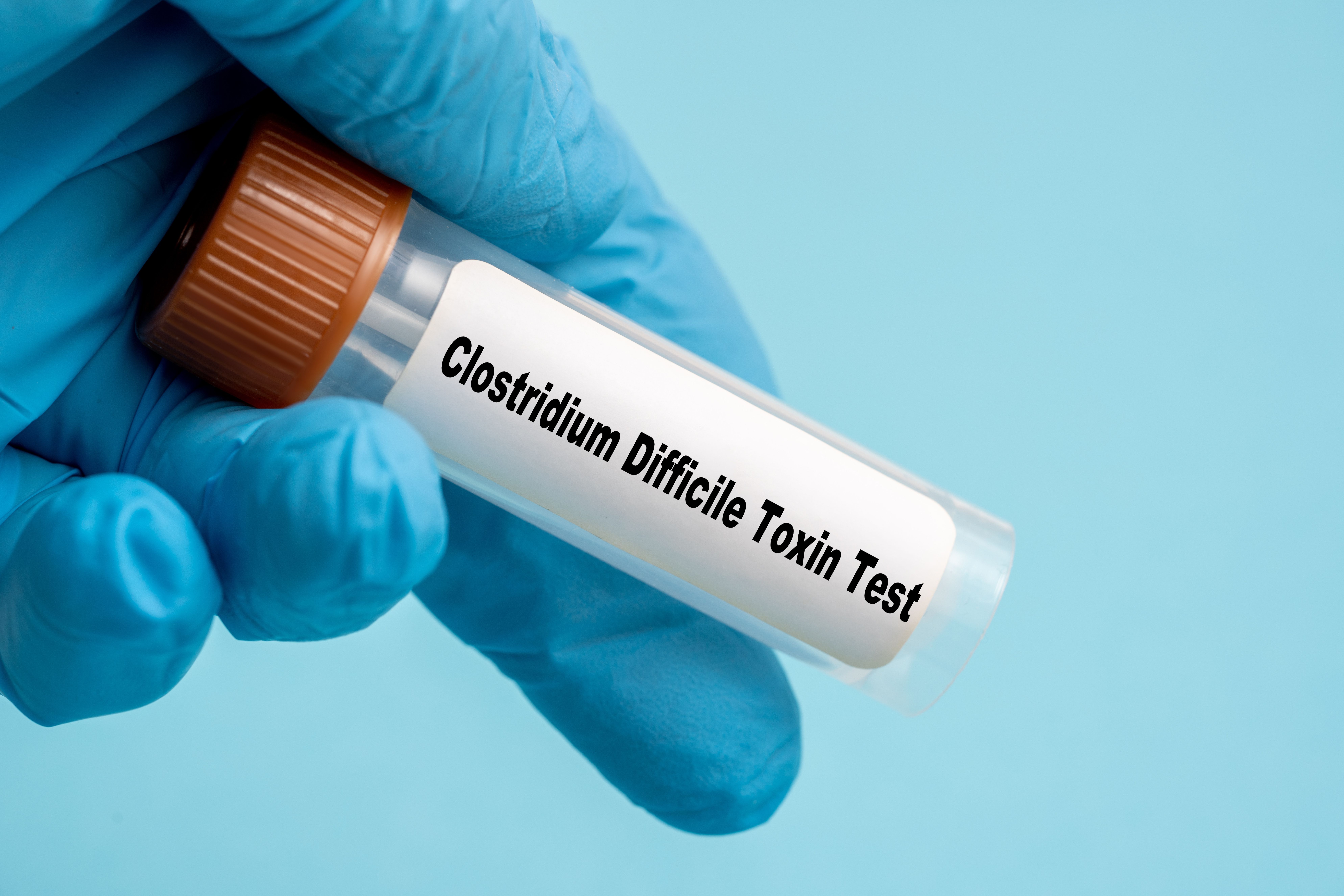Article
Study: Fecal Microbiota Transplantation Likely Leads to Large Increase in Resolution of Recurrent C. Difficile
Author(s):
Fecal microbiota transplantation may result in a slight reduction in serious adverse events, but the confidence intervals around the summary estimate were wide in immunocompetent adults with recurrent C. difficile infection.
In immunocompetent adults with recurrent Clostridioides difficile infection (CDI), new research has found that fecal microbiota transplant (FMT) likely increases the chance of resolution compared to alternative treatments, such as antibiotics.
Credit: luchschenF - stock.adobe.com

C. difficile is a bacterium that causes potentially life-threatening diarrheal illness in patients with an unhealthy combination of gut bacteria, known as dysbiosis. It can also cause recurrent infections in nearly one-third of infected individuals.
Traditional treatments for recurrent C. difficile include antibiotics, which may further exacerbate dysbiosis. There is a growing interest in correcting the underlying dysbiosis in recurrent CDI using FMT, although there is a need to establish the benefits and harms of FMT based on data from randomized controlled trials.
To do this, investigators recently undertook a literature review of randomized trials for adults or children with recurrent CDI. Eligible interventions must have met the definition of FMT, which is the administration of fecal material containing distal gut microbiota from a healthy donor to the gastrointestinal tract of a person with recurrent CDI. The comparison group included participants who did not receive FMT and were given either placebo, autologous FMT, no intervention, or antibiotics with activity against C. difficile.
The review included 6 studies with 320 total participants. Two studies were conducted in Denmark, and 1 each in the Netherlands, Canada, Italy, and the United States. Four were single-center and 2 were multicenter studies, and all included only adults.
Five studies excluded patients who were severely immunocompromised, with just 1 study including 10 participants who were receiving immunosuppressive therapy out of the 64 enrolled. These participants were similarly distributed between the FMT arm and comparison arms.
One study used nasoduodenal tube as the route of administration, 2 studies used enema only, 2 used colonoscopic only delivery, and 1 used either nasojejunal or colonoscopic delivery, depending on a clinical determination. Five studies had at least 1 comparison group who received vancomycin and all 6 studies assessed the efficacy and safety of FMT for the treatment of recurrent CDI.
According to the study results, pooled results showed that the use of FMT in immunocompetent participants with recurrent CDIlikely leads to a significant increase in resolution of recurrent CDI in the FMT group compared to the control group. Notably, FMT probably results in a slight reduction in serious adverse events (AEs), but the confidence intervals around the summary estimate were wide.
FMT may also result in a reduction in all-cause mortality, but the number of events was small and the confidence intervals of the summary estimate were wide. None of the included studies included colectomy rates.
Based on these findings, the investigators said FMT likely leads to a large increase in the resolution of recurrent CDI compared to alternative treatments. There was no conclusive evidence regarding the safety of FMT as the number of events was small for serious AEs and all-cause mortality.
Additional data from large national registry databases might be necessary to assess any short- or long-term risks with using FMT for the treatment of recurrent CDI. Elimination of the single study that included some immunocompromised participants did not alter these conclusions, but due to the low number of immunocompromised participants involved, conclusions cannot be drawn about the risks of benefits of FMT for this population.
REFERENCE
Minkoff NZ, Aslam S, Medina M, Tanner-Smith EE, Zackular JP, Acra S, et al. Fecal microbiota transplantation for the treatment of recurrent Clostridioides difficile (Clostridium difficile). Cochrane Database of Systematic Reviews. 2023(4);1465-1858. doi:10.1002/14651858
Newsletter
Stay informed on drug updates, treatment guidelines, and pharmacy practice trends—subscribe to Pharmacy Times for weekly clinical insights.






